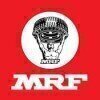Manager Internal Audit
20+ Manager Internal Audit Interview Questions and Answers

Asked in Paytm

Q. How would you audit a bank's credit card department that has not reported any revenue leakage? How would you test the controls?
I would conduct a thorough review of the credit card department's processes, controls, and documentation to identify any potential revenue leakage.
Review the credit card department's policies and procedures to understand how revenue is recorded and reported
Analyze transaction data to identify any anomalies or discrepancies that could indicate revenue leakage
Conduct interviews with staff members to gain insights into their roles and responsibilities in revenue reporting
Perform...read more

Asked in Jindal Power

Q. What are five major risk factors related to power generation in India?
Major risk factors in power generation in India
Lack of fuel supply and dependency on imports
Inadequate transmission and distribution infrastructure
Environmental concerns and regulations
Political instability and policy changes
Financial viability and debt burden of power companies
Manager Internal Audit Interview Questions and Answers for Freshers

Asked in Shapoorji Pallonji Group

Q. How is the leave policy of the company and if that is strictly adhered?
The company's leave policy is comprehensive, promoting work-life balance while ensuring operational efficiency.
The leave policy includes annual leave, sick leave, and personal leave, ensuring employees have time for rest and recovery.
For example, employees are entitled to 20 days of annual leave, which can be accrued and carried over to the next year.
Sick leave is provided to support employees during health issues, with a requirement for a doctor's note after three consecutiv...read more

Asked in Al Faisal Holding

Q. Why should I help someone prepare a cheat sheet?
Helping someone prepare a cheat paper is unethical and goes against professional integrity.
Helping someone cheat undermines the fairness and credibility of the evaluation process.
It is important to uphold ethical standards and promote honesty and integrity in all professional endeavors.
Assisting someone in cheating can have serious consequences, including damage to one's reputation and potential legal implications.
Encouraging cheating creates a culture of dishonesty and under...read more

Asked in Shapoorji Pallonji Group

Q. How is approach of the HOD in approving leaves. Is there any unneccesary resistence ?
The HOD's approach to leave approval can vary, impacting team morale and productivity.
The HOD generally follows a structured process for leave approval, ensuring fairness.
There may be instances of unnecessary resistance, especially during peak project times.
For example, if a team member requests leave during a critical deadline, the HOD might hesitate.
Clear communication about leave policies can help mitigate resistance.
Encouraging a culture of trust can lead to more flexible...read more


Q. Can you describe the audit process in your current organization?
Our audit process involves planning, fieldwork, reporting, and follow-up to ensure compliance and improve operations.
Planning: We define the audit scope and objectives, such as assessing financial controls.
Fieldwork: We gather evidence through interviews and document reviews, like examining transaction records.
Reporting: We compile findings into a report, highlighting risks and recommendations for improvement.
Follow-up: We track the implementation of recommendations to ensure...read more
Manager Internal Audit Jobs




Asked in IIFL Finance

Q. Can you please rephrase your question?

Asked in Flipkart

Q. What is the risk-based method of audit?
Risk based method of audit is an approach that focuses on identifying and assessing risks to prioritize audit activities.
Identifies and assesses risks to prioritize audit activities
Evaluates the likelihood and impact of risks
Determines the level of assurance required for each risk
Tailors audit procedures to address identified risks
Examples: financial statement audits, IT audits, operational audits
Share interview questions and help millions of jobseekers 🌟


Asked in Emaar India Limited

Q. What is your risk assessment approach?
Risk assessment involves identifying, analyzing, and prioritizing risks to minimize their impact on an organization.
Identify risks: Determine potential risks such as fraud, compliance issues, or operational inefficiencies.
Analyze risks: Evaluate the likelihood and impact of each risk, using qualitative and quantitative methods.
Prioritize risks: Rank risks based on their severity and likelihood to focus on the most critical areas first.
Develop mitigation strategies: Create act...read more

Asked in Peerless Biotech

Q. Is physical documentation and verification of prior employment history required?

Asked in Jindal Power

Q. Report writing techniques and skills
Report writing requires clear structure, concise language, and attention to detail.
Start with an executive summary that highlights key findings and recommendations.
Organize the report into sections with clear headings and subheadings.
Use bullet points and tables to present data and make it easier to read.
Avoid jargon and technical language that may be confusing to non-experts.
Proofread carefully for grammar, spelling, and formatting errors.
Include appendices with supporting d...read more

Asked in Deloitte Digital

Q. Explain the process flow of procure-to-pay (P2P).
P2P process flow involves requisition, approval, purchase order creation, goods receipt, invoice receipt, and payment.
Requisition: Request for goods or services is made by the user.
Approval: Requisition is approved by the appropriate authority.
Purchase Order Creation: Purchase order is generated based on the approved requisition.
Goods Receipt: Goods or services are received and verified against the purchase order.
Invoice Receipt: Supplier sends an invoice for the goods or ser...read more

Asked in ICICI Bank

Q. What is Internal Control?
Internal control refers to the policies, procedures, and practices implemented by an organization to ensure the achievement of its objectives.
Internal control is a process designed to provide reasonable assurance regarding the achievement of objectives in the following categories: effectiveness and efficiency of operations, reliability of financial reporting, and compliance with applicable laws and regulations.
Internal control includes activities such as risk assessment, cont...read more

Asked in PwC

Q. What are Audit Assertions?
Audit assertions are the claims made by management regarding the accuracy and completeness of financial statements.
Audit assertions are used by auditors to evaluate the financial statements of a company.
There are five main categories of audit assertions: existence, completeness, accuracy, valuation, and presentation and disclosure.
For example, an existence assertion would be used to verify that all reported assets actually exist and are owned by the company.
Auditors use these...read more

Asked in Ramco Industries

Q. What type of health problem
I am fortunate to not have any major health problems at the moment.
Regular exercise and healthy eating habits help maintain good health
Annual check-ups with healthcare providers can catch any potential issues early
Stress management techniques such as meditation or yoga can improve overall well-being

Asked in ICICI Bank

Q. Why internal audit?
Internal audit allows me to utilize my analytical skills to identify risks, improve processes, and add value to the organization.
Opportunity to identify and mitigate risks within the organization
Improving processes and operational efficiency
Contributing to the overall success and growth of the organization
Utilizing analytical skills to provide valuable insights
Continuous learning and development in a dynamic environment

Asked in Humalife Healthcare

Q. What is RCM management?
RCM management involves optimizing revenue cycle processes to enhance financial performance and ensure compliance in organizations.
RCM stands for Revenue Cycle Management, focusing on the financial processes of healthcare organizations.
It includes patient registration, billing, and collections, ensuring timely payments.
Effective RCM management reduces claim denials; for example, verifying insurance eligibility upfront.
It involves analyzing data to identify trends and improve ...read more

Asked in Bandhan Bank

Q. What is an audit?
Audit is a systematic evaluation of financial records, processes, and compliance to ensure accuracy and adherence to regulations.
Audits can be internal (conducted by the organization) or external (conducted by independent parties).
They assess financial statements for accuracy, such as verifying revenue and expenses.
Compliance audits ensure adherence to laws and regulations, like tax compliance.
Operational audits evaluate the efficiency of processes, for example, assessing inv...read more

Asked in Deloitte Digital

Q. What are two risks associated with inventory?
Two risks in inventory are obsolescence and theft.
Obsolescence: Inventory becoming outdated or obsolete, leading to potential losses.
Theft: Inventory being stolen, resulting in financial losses and potential disruptions in operations.

Asked in Bharat FIH

Q. 5 C's of Internal Audit
The 5 C's of Internal Audit are Competence, Credibility, Confidentiality, Compliance, and Communication.
Competence: Having the necessary skills and knowledge to perform audits effectively.
Credibility: Being trustworthy and reliable in conducting audits.
Confidentiality: Ensuring that sensitive information is protected and not disclosed.
Compliance: Following relevant laws, regulations, and internal policies.
Communication: Effectively communicating audit findings and recommendat...read more

Asked in Incheon Motors

Q. Do you have any health issues?
No health issues
I am in good health and have no current health issues
I regularly exercise and maintain a healthy lifestyle
I have not had any recent illnesses or medical concerns

Asked in Accenture

Q. What are your salary expectations?
I expect a competitive salary based on my experience and industry standards, ideally in the range of $80,000 to $100,000.
Research industry standards: For example, Glassdoor shows Internal Audit Managers earn between $75,000 and $120,000.
Consider my experience: With over 7 years in internal audit, I bring valuable skills that justify a higher salary.
Location matters: Salaries can vary significantly by region; for instance, positions in major cities often pay more.
Benefits and ...read more

Asked in Accenture

Q. Do you have any technical questions?
Internal Audit Managers ensure compliance and risk management through effective auditing practices.
Understand the organization's internal controls and risk management processes.
Conduct audits to assess compliance with laws and regulations, e.g., Sarbanes-Oxley Act.
Utilize data analytics to identify trends and anomalies in financial data.
Prepare audit reports with findings and recommendations for improvement.
Collaborate with other departments to enhance internal processes and ...read more

Asked in MRF Tyres

Q. Can you share some personal questions you might ask in an interview?
I am a detail-oriented professional with a passion for internal auditing and risk management.
Over 10 years of experience in internal auditing across various industries.
Led a team that identified $1M in cost savings through process improvements.
Strong analytical skills, demonstrated by successful risk assessments.
Effective communicator, able to present findings to senior management.
Interview Experiences of Popular Companies









Reviews
Interviews
Salaries
Users


















